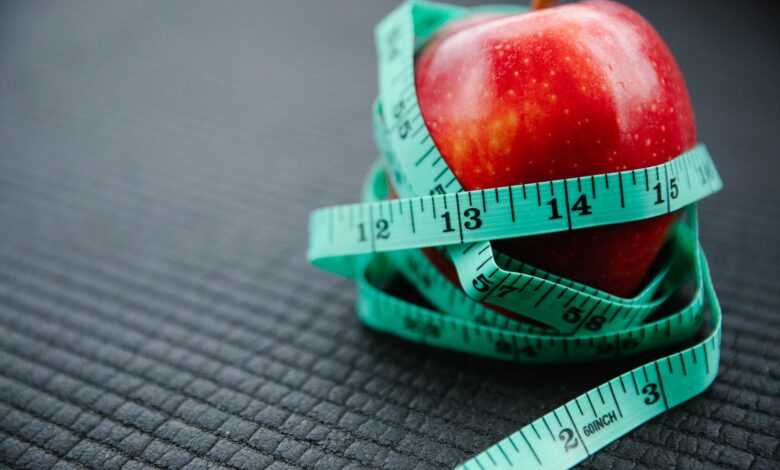
Maximizing Weight Loss and Health Benefits with a Low Calorie Diet for Men
Low-calorie diets have become a popular weight-loss tool for men seeking to improve their health and wellness. This type of diet involves reducing daily calorie intake in order to achieve weight loss. However, low-calorie diets offer many other benefits beyond weight loss, making them a valuable tool for men looking to improve their overall health and well-being.
Some of the key benefits of low-calorie diets for men include improved heart health, better insulin sensitivity, increased energy levels, and improved physical performance. Low-calorie diets can also lead to reduced risk of chronic diseases such as type 2 diabetes, cardiovascular disease, and certain types of cancer. Additionally, a low-calorie diet can help improve mental health and cognitive function, boost the immune system, and increase lifespan.
With so many potential benefits, low-calorie diets are a valuable tool for men looking to improve their health and wellness. However, it’s important to approach low-calorie diets with caution and seek professional guidance to ensure a safe and effective approach. By incorporating a balanced diet and regular physical activity, men can successfully follow a low-calorie diet and achieve their weight loss goals while also enjoying the numerous health benefits it provides.
Understanding energy balance and metabolism
Energy balance and metabolism play crucial roles in determining weight and overall health. Energy balance refers to the balance between the amount of energy consumed (calories from food and drinks) and the amount of energy used (through physical activity and daily living). When energy balance is positive, meaning more calories are consumed than used, weight gain may occur. On the other hand, when energy balance is negative, meaning more calories are used than consumed, weight loss may occur.
Metabolism, on the other hand, refers to the processes by which the body converts food into energy. It includes both the metabolism of food and the energy used by the body to perform physical and mental activities. The metabolic rate, or the speed at which metabolism occurs, can vary greatly among individuals and is influenced by several factors such as age, sex, weight, and physical activity.
Understanding energy balance and metabolism is crucial in determining a safe and effective calorie intake for a low-calorie diet. By consuming fewer calories than the body uses, a negative energy balance can be achieved, leading to weight loss. However, it’s important to avoid overly restrictive calorie intake, as this can negatively impact metabolism and lead to health problems. It’s recommended to seek professional guidance to determine a safe and effective calorie intake for a low-calorie diet that takes into account an individual’s energy balance and metabolism.
Incorporating nutrient-dense foods into your diet
Incorporating nutrient-dense foods into your diet is crucial for a balanced and healthy low-calorie diet. Nutrient-dense foods are foods that are high in essential vitamins, minerals, and other nutrients but low in calories. These foods provide the body with the nutrients it needs to function properly without contributing excess calories that can lead to weight gain.
Some examples of nutrient-dense foods include leafy greens, berries, whole grains, legumes, lean proteins, and non-starchy vegetables. These foods should form the foundation of a low-calorie diet, as they provide essential nutrients and fibre, help regulate hunger and fullness, and support overall health.
It’s also important to limit or avoid foods that are high in calories but low in nutrients, such as sugary drinks, processed snacks, and fried foods. These foods provide little nutritional value and can contribute to weight gain and health problems.
Incorporating nutrient-dense foods into a low-calorie diet can help support weight loss while also promoting overall health and well-being. A diet that is rich in nutrients helps to keep the body fueled, supports physical performance, and reduces the risk of chronic diseases. By prioritizing nutrient-dense foods and limiting high-calorie, low-nutrient foods, a balanced and healthy low-calorie diet can be achieved.
Balancing macronutrients and micronutrients for optimal health
Balancing macronutrients and micronutrients is crucial for optimal health when following a low-calorie diet. Macronutrients include carbohydrates, proteins, and fats, and are the nutrients that provide the body with energy. Micronutrients, on the other hand, include vitamins and minerals and are essential for various physiological processes in the body.
To balance macronutrients and micronutrients, it’s important to consume an appropriate ratio of carbohydrates, proteins, and fats while also ensuring an adequate intake of vitamins and minerals. For example, a low-calorie diet that is low in carbohydrates and high in proteins can lead to deficiencies in certain vitamins and minerals, such as B vitamins and magnesium, which are found in carbohydrate-rich foods.
Additionally, it’s important to consume a variety of nutrient-dense foods to ensure adequate micronutrient intake. This includes eating a variety of fruits and vegetables, as well as including whole grains, legumes, and lean proteins in your diet.
Balancing macronutrients and micronutrients can help to support weight loss while also promoting overall health and well-being. By ensuring adequate intake of essential vitamins and minerals, the body can function optimally, supporting physical performance and reducing the risk of chronic diseases. A balanced low-calorie diet, with a focus on nutrient-dense foods, can help to achieve both weight loss and optimal health.
Maintaining muscle mass while on a low-calorie diet
Maintaining muscle mass while on a low-calorie diet can be a concern for many men, as a significant calorie reduction can result in muscle loss as well as fat loss. This is why it’s important to take steps to protect muscle mass while following a low-calorie diet.
One of the key strategies for maintaining muscle mass is to consume adequate amounts of protein. Protein is essential for muscle repair and growth, and a low-calorie diet that is high in protein can help to support muscle mass. Aim to consume 1.6 to 2.2 grams of protein per kilogram of body weight per day.
In addition to protein, resistance exercise can help to maintain muscle mass while on a low-calorie diet. Resistance exercise, such as weightlifting, stimulates muscle growth and helps to protect muscle mass during weight loss. Incorporating resistance exercise into your routine can also help to boost metabolism and support weight loss.
Finally, it’s important to maintain an adequate calorie intake, as a very low-calorie diet can lead to muscle loss. A safe and effective calorie intake for weight loss is typically in the range of 500-800 calories below maintenance levels. This calorie reduction should be gradual, as a rapid decrease in calorie intake can result in muscle loss.
Maintaining muscle mass while on a low-calorie diet is essential for overall health and well-being, as well as for supporting physical performance. By consuming adequate amounts of protein, incorporating resistance exercise, and maintaining an adequate calorie intake, it is possible to achieve weight loss while also preserving muscle mass.
Staying motivated and overcoming challenges during a low-calorie diet
Staying motivated and overcoming challenges during a low-calorie diet can be difficult, but it’s essential for success. Achieving weight loss goals requires discipline and commitment, and it’s normal to face challenges along the way. Here are some strategies for staying motivated and overcoming challenges during a low-calorie diet:
- Set realistic goals: Setting achievable and realistic weight loss goals can help to keep you motivated. It’s important to focus on progress, rather than perfection, and celebrate small victories along the way.
- Keep a food diary: Keeping track of what you eat can help to hold you accountable and ensure that you are sticking to your low-calorie diet.
- Find support: Surrounding yourself with supportive friends and family can help to keep you motivated and provide encouragement when you need it. Joining a support group or working with a dietitian can also be helpful.
- Stay active: Physical activity can help to boost mood, reduce stress, and support weight loss. Incorporating physical activity into your routine can also help to overcome boredom and prevent burnout.
- Be flexible: It’s important to be flexible and allow for occasional deviations from your low-calorie diet. Strict adherence to a diet can be unsustainable, and allowing for some flexibility can help to prevent feelings of deprivation and keep you motivated.
- Find alternative ways to cope with stress: Stress can lead to overeating and derailing weight loss efforts. Finding alternative ways to cope with stress, such as exercise, meditation, or spending time with friends, can help to overcome this challenge.
Staying motivated and overcoming challenges during a low-calorie diet requires discipline and commitment. By setting realistic goals, finding support, staying active, and finding alternative ways to cope with stress, you can increase your chances of success and achieve your weight loss goals.
Tips for a successful low-calorie diet
A low-calorie diet can be an effective way to lose weight, but it can also be challenging. Here are some tips for a successful low-calorie diet:
- Determine your calorie needs: Calculate your daily caloric needs based on your age, weight, height, and activity level. This will help you determine the appropriate calorie intake for your low-calorie diet.
- Plan your meals: Meal planning can help to ensure that you stick to your low-calorie diet and avoid making impulsive, unhealthy food choices. Plan your meals in advance and include a variety of nutrient-dense foods, such as fruits, vegetables, whole grains, and lean proteins.
- Incorporate physical activity: Regular physical activity can help to boost metabolism, increase energy levels, and support weight loss. Aim to incorporate 30 minutes of moderate-intensity activity into your daily routine.
- Stay hydrated: Drinking plenty of water can help to flush out toxins and support weight loss. Aim to drink at least eight glasses of water per day.
- Get adequate sleep: Sleep is essential for weight loss, as it helps to regulate hormones that control hunger and metabolism. Aim to get 7-9 hours of sleep per night.
- Avoid unhealthy habits: Unhealthy habits, such as skipping meals, eating late at night, or consuming high-calorie, sugary foods, can sabotage weight loss efforts. Avoid these habits and focus on making healthy food choices.
- Seek support: Surrounding yourself with supportive friends and family can help to keep you motivated and provide encouragement when you need it. Joining a support group or working with a dietitian can also be helpful.
By following these tips, you can increase your chances of success on a low-calorie diet and achieve your weight loss goals. Remember to be patient and persistent, and to focus on progress, rather than perfection.
In conclusion, low-calorie diets can offer numerous benefits for men. These diets can help with weight loss, improve metabolism, boost energy levels, and support overall health and wellness. Additionally, incorporating nutrient-dense foods, staying hydrated, getting adequate sleep, avoiding unhealthy habits, and seeking support can enhance the success of a low-calorie diet.
However, it’s important to keep in mind that everyone’s needs are unique and what may work for one person may not work for another. It’s always best to consult with a healthcare professional or registered dietitian to determine a safe and effective calorie intake, as well as to monitor progress and make any necessary adjustments. By following a well-rounded and balanced low-calorie diet, men can achieve their weight loss goals and improve their overall health and well-being.




